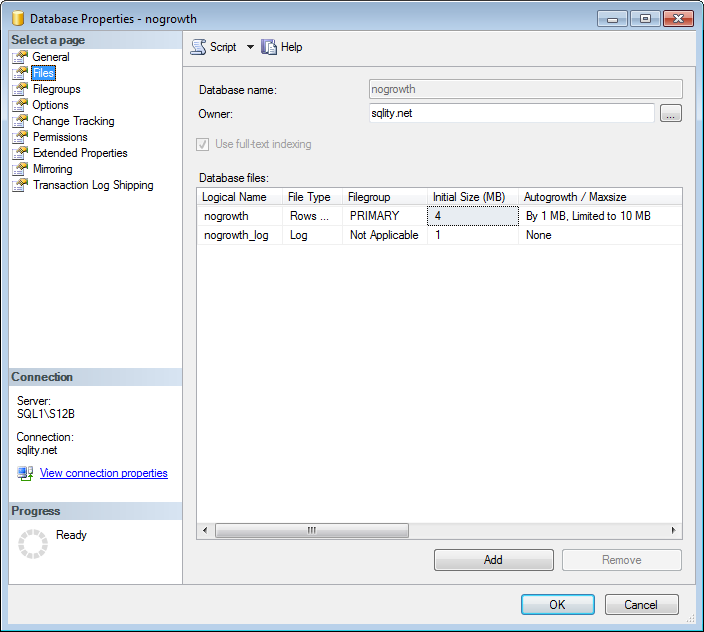I have a SQL Server 2012 SP1 database which has a problem that the transaction log is full. It consists of a single data file and a single log file, both about 800MB.
I had 5GB free disk space, and I've enlarged it to 20GB+, just in case there was a disk space problem.
The database is in SIMPLE recovery model.
I cannot do a full database backup - it fails with
transaction log is full, with wait_desc of 'CHECKPOINT'
MTA: Note - the wait_desc is CHECKPOINT (someone asked below about the wait desc strings)
I cannot add a log file - it fails with the same error.
MTA: I cannot change the growth model of the one existing log file - it fails with the same error.
MTA: The existing log file has +10% growth.
MTA: I also cannot increase the size of the existing log file - it fails with the same error.
I cannot change the recovery model to full or bulk-logged - it fails with the same error.
I cannot execute a manual CHECKPOINT - it fails with the same error.
DBCC LOGINFO (dbid) shows that there are a couple hundred VLFs, all in status 2.
I'm not using change tracking, mirroring, or transaction log shipping.
What can I do to resolve this?
(As recommended, moved from stackoverflow to dba.stackexchange)
MTA: More tech details here (but no answers at all): http://www.sqlservercentral.com/Forums/Topic1451836-2799-1.aspx
eg, "DBCC OPENTRAN gives me no open transactions"

